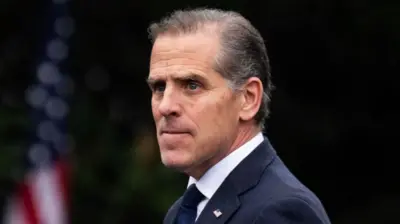We've updated our Privacy and Cookies Policy
We've made some important changes to our Privacy and Cookies Policy and we want you to know what this means for you and your data.
Which MPs don't display party allegiance on Twitter?
Top Stories
- Author, Joey D'Urso and Denis Doherty
- Role, ҙуПуҙ«ГҪ political research unit
Most Conservative MPs on Twitter don't mention the party in their profiles on the social networking site, ҙуПуҙ«ГҪ analysis reveals.
The vast majority of MPs from other parties clearly display their party allegiance.
There are 316 Tory MPs, and 261 of them use Twitter. Of these, just 43% explicitly mention the Conservative Party in their profile.
It's not as if these Conservative MPs are keeping their party allegiance a secret - many of them frequently share official party material, and tweet pro-Tory messages. Many others simply aren't very active on Twitter.
Top Stories
However it is striking that most Tories don't explicitly mention their party in their profile, while the vast majority of other MPs do.
The data was compiled on Thursday, 18 January 2018 with the help of Alex Krasodomski, a digital researcher at the think tank Demos.
As well as MPs who mention their party in their biography, these figures also include MPs who show another clear sign of allegiance, such as a photo with their leader, or alongside placard-wielding activists.
Image source, Twitter
Top Stories
Labour MPs are much more likely to use Twitter than Conservatives - 247 of 261 have an account.
They are also far more likely to be explicit about what party they belong to - 90% either mention Labour in the biography, or show a clear sign of party allegiance in their profile pictures.
Image source, Twitter
Of the 12 Liberal Democrat MPs, all but one - Stephen Lloyd in Eastbourne - mention the party.
All 35 SNP MPs have a Twitter account, but only four do not mention their party anywhere. Nine of the 10 DUP MPs use the site, and all nine make their allegiance clear.
Image source, Twitter
Of course there's nothing wrong with MPs not mentioning their party on their Twitter blurb.
There might be some good reasons - for instance MPs don't just represent their party, they are also a voice in parliament for their constituents - tens of thousands of whom didn't vote for them.
Also, many like to see themselves as independent voices rather than party loyalists.
Top Stories
More to explore
Most read
Content is not available








